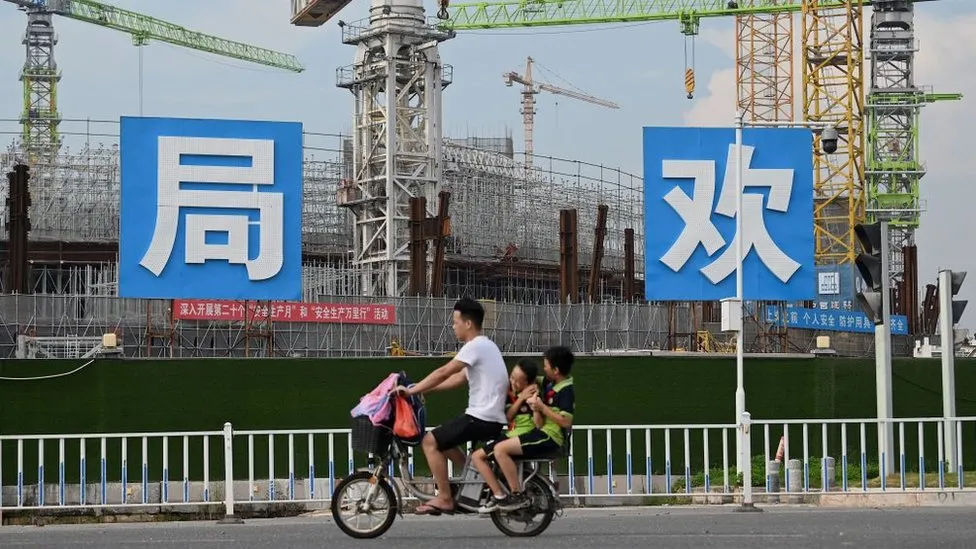In the midst of a crisis at the world's most indebted company, its chairman finds himself under police surveillance, exacerbating an already dire situation.
Evergrande, the Chinese property giant, has been facing turmoil, with reports of current and former executives being detained. The company took the drastic step of suspending trading of its shares in Hong Kong until further notice, marking another low point for the firm that fell into default in 2021, triggering a crisis in China's real estate market.

Evergrande's Vast Empire:
Founded in 1996 by businessman Hui Ka Yan in Guangzhou, southern China, Evergrande, formerly known as the Hengda Group, has grown into a colossal entity. The company, Evergrande Real Estate, boasts ownership of more than 1,300 projects spanning over 280 cities throughout China. However, its reach extends beyond real estate development, encompassing diverse sectors such as wealth management, electric car production, food and beverage manufacturing, and even sports, with a controlling stake in one of China's prominent football teams, Guangzhou FC.
Why Evergrande is in Dire Straits:
Evergrande embarked on an ambitious expansion, amassing a staggering debt of over $300 billion, propelling it to become one of China's largest corporations. However, in 2020, Beijing introduced regulations to curb the debt levels of major real estate developers. These measures compelled Evergrande to offer substantial discounts on its properties to maintain cash flow. Now, the company faces difficulties meeting interest payments on its debts, resulting in a precipitous 99% drop in the value of its shares over the past three years.
In August, Evergrande filed for bankruptcy in New York in a bid to protect its US assets while negotiating a multi-billion dollar deal with creditors.
The Far-Reaching Impact of Evergrande's Collapse:
The potential ramifications of Evergrande's collapse are substantial. Firstly, numerous buyers invested in Evergrande properties before construction commenced, risking the loss of their deposits if the company goes under. Moreover, businesses in various sectors, including construction, design, and material supply, could suffer significant losses, potentially leading to their bankruptcy.
Another critical concern is the potential impact on China's financial system. Should Evergrande fail, banks and other lenders may be compelled to reduce lending, potentially triggering a credit crunch where companies struggle to secure affordable loans. A credit crunch could hinder economic growth, creating challenges for companies seeking expansion and potentially dissuading foreign investors from putting their money into China.
"Too Big to Fail" or an Inevitable Collapse?
The severe consequences of a heavily indebted company's collapse have led some analysts to speculate that Beijing might intervene to rescue Evergrande. However, some experts believe that it may be too late. Jackson Chan from Bondsupermart suggests that Evergrande is already on the brink of forced liquidation.
This impending crisis could have a profound impact on China's economy, given that the property sector contributes significantly to its growth. Some even draw parallels to Japan's economic stagnation in the 1980s.
Nonetheless, others argue that a complete collapse of Evergrande is unlikely, as it could trigger a cascading effect on other indebted companies and further harm the overall property sector, which is vital to the country's economic growth. While the authorities may try to keep Evergrande afloat, it may emerge as a radically diminished entity.
In this tumultuous situation, the fate of Evergrande hangs in the balance, with profound implications for China's economy and beyond.
Source: by Peter Hoskins and Mariko Oi at BBC